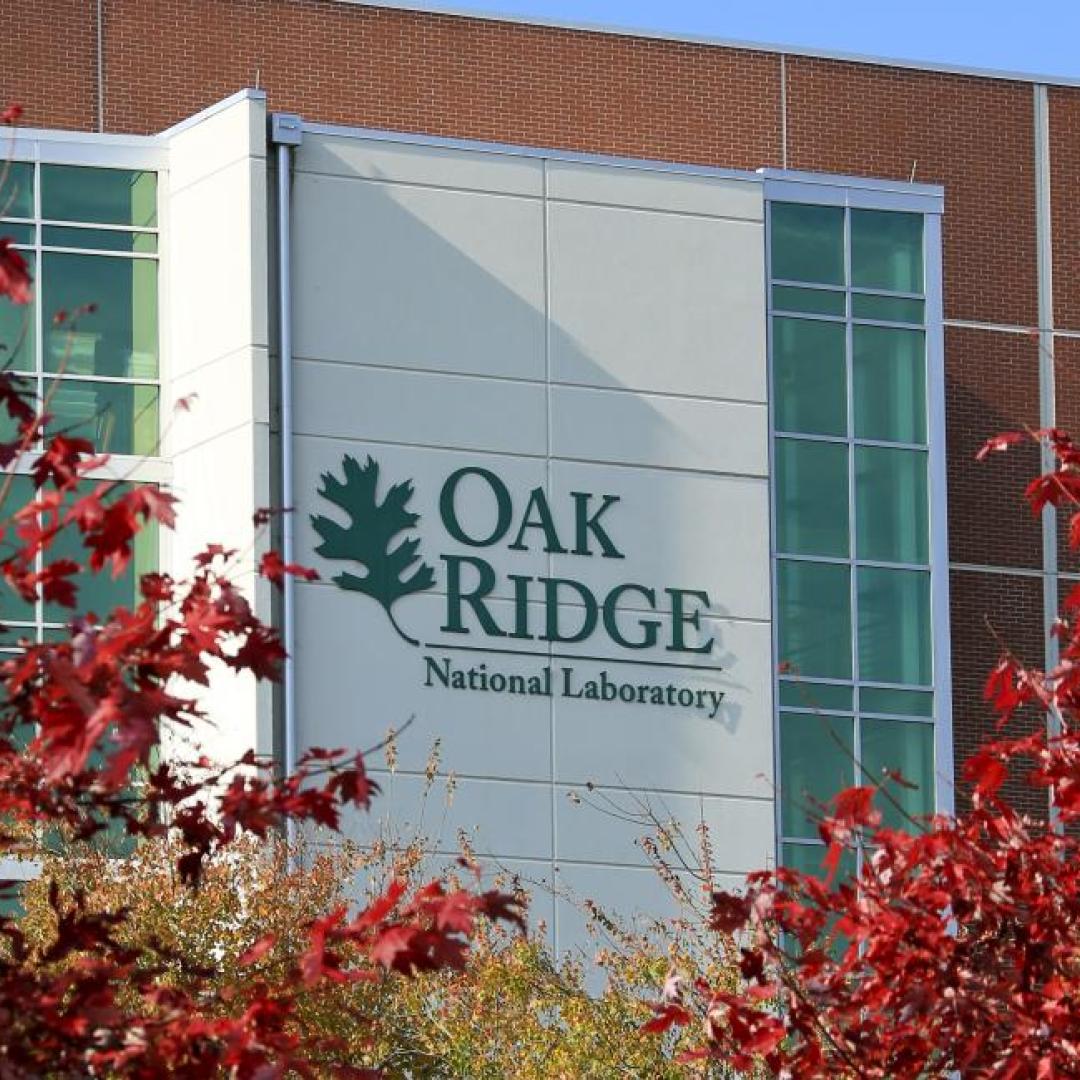Filter News
Area of Research
- (-) Biology and Environment (177)
- (-) National Security (78)
- Advanced Manufacturing (34)
- Biological Systems (18)
- Biology and Soft Matter (5)
- Building Technologies (12)
- Chemical and Engineering Materials (4)
- Chemistry and Physics at Interfaces (11)
- Clean Energy (522)
- Climate and Environmental Systems (14)
- Computational Biology (6)
- Computational Chemistry (5)
- Computational Engineering (5)
- Computer Science (19)
- Data (1)
- Earth Sciences (1)
- Electricity and Smart Grid (3)
- Energy Frontier Research Centers (14)
- Energy Sciences (5)
- Fossil Energy (3)
- Fuel Cycle Science and Technology (3)
- Functional Materials for Energy (16)
- Fusion and Fission (54)
- Fusion Energy (17)
- Geographic Information Science and Technology (3)
- Isotope Development and Production (3)
- Isotopes (35)
- Materials (432)
- Materials Characterization (2)
- Materials for Computing (36)
- Materials Synthesis from Atoms to Systems (13)
- Materials Under Extremes (12)
- Mathematics (1)
- Neutron Data Analysis and Visualization (4)
- Neutron Science (190)
- Nuclear Science and Technology (74)
- Nuclear Systems Modeling, Simulation and Validation (3)
- Nuclear Systems Technology (1)
- Quantum Condensed Matter (4)
- Quantum information Science (9)
- Reactor Technology (1)
- Renewable Energy (4)
- Sensors and Controls (5)
- Supercomputing (311)
- Transportation Systems (11)
News Topics
- 3-D Printing/Advanced Manufacturing (13)
- Advanced Reactors (2)
- Artificial Intelligence (21)
- Big Data (15)
- Bioenergy (46)
- Biology (74)
- Biomedical (17)
- Biotechnology (13)
- Buildings (3)
- Chemical Sciences (12)
- Clean Water (11)
- Climate Change (43)
- Composites (5)
- Computer Science (36)
- Coronavirus (15)
- Critical Materials (1)
- Cybersecurity (19)
- Decarbonization (20)
- Energy Storage (8)
- Environment (91)
- Exascale Computing (5)
- Frontier (4)
- Fusion (2)
- Grid (9)
- High-Performance Computing (24)
- Hydropower (8)
- Isotopes (2)
- Machine Learning (19)
- Materials (13)
- Materials Science (9)
- Mathematics (3)
- Mercury (7)
- Microscopy (10)
- Molten Salt (1)
- Nanotechnology (8)
- National Security (35)
- Net Zero (2)
- Neutron Science (7)
- Nuclear Energy (6)
- Partnerships (8)
- Physics (3)
- Polymers (2)
- Quantum Science (1)
- Renewable Energy (1)
- Security (12)
- Simulation (14)
- Summit (12)
- Sustainable Energy (32)
- Transformational Challenge Reactor (1)
- Transportation (5)
Media Contacts
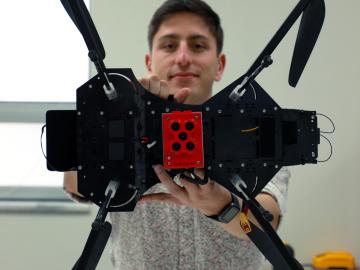
Jack Orebaugh, a forensic anthropology major at the University of Tennessee, Knoxville, has a big heart for families with missing loved ones. When someone disappears in an area of dense vegetation, search and recovery efforts can be difficult, especially when a missing person’s last location is unknown. Recognizing the agony of not knowing what happened to a family or friend, Orebaugh decided to use his internship at the Department of Energy’s Oak Ridge National Laboratory to find better ways to search for lost and deceased people using cameras and drones.
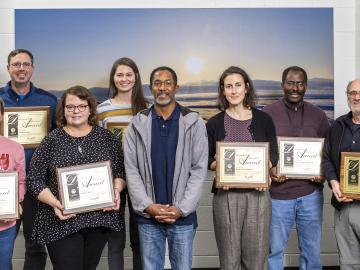
ORNL Environmental Sciences Division Director Eric Pierce presented the division’s 2023 Distinguished Achievement Awards at the organization’s December all-hands meeting.

Digital twins are exactly what they sound like: virtual models of physical reality that continuously update to reflect changes in the real world.
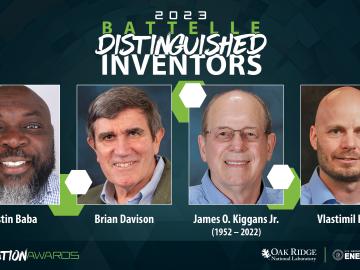
Four scientists affiliated with ORNL were named Battelle Distinguished Inventors during the lab’s annual Innovation Awards on Dec. 1 in recognition of being granted 14 or more United States patents.
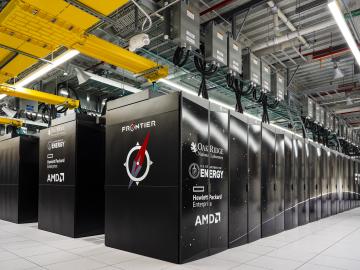
ORNL is home to the world's fastest exascale supercomputer, Frontier, which was built in part to facilitate energy-efficient and scalable AI-based algorithms and simulations.
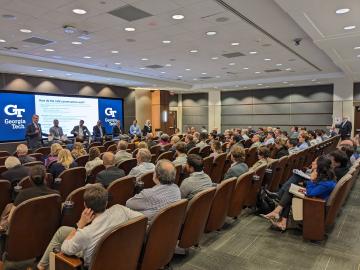
ORNL's Climate Change Science Institute and the Georgia Institute of Technology hosted a Southeast Decarbonization Workshop in November that drew scientists and representatives from government, industry, non-profits and other organizations to

Scientists at ORNL used their knowledge of complex ecosystem processes, energy systems, human dynamics, computational science and Earth-scale modeling to inform the nation’s latest National Climate Assessment, which draws attention to vulnerabilities and resilience opportunities in every region of the country.
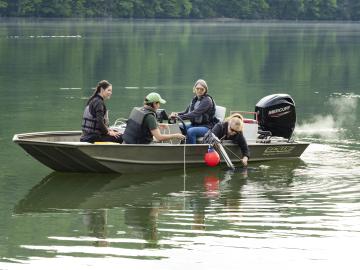
Griffiths and her colleagues are examining how much methane and carbon dioxide is released from the reservoir. Their aim is to better understand and predict how much of these climate-warming gases are coming from reservoirs across the nation.

While completing his undergraduate studies in the Philippines, atmospheric chemist Christian Salvador caught a glimpse of the horizon. What he saw concerned him: a thin, black line hovering above the city.
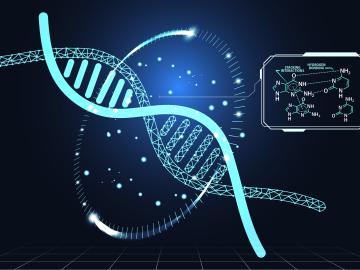
Scientists at ORNL used their expertise in quantum biology, artificial intelligence and bioengineering to improve how CRISPR Cas9 genome editing tools work on organisms like microbes that can be modified to produce renewable fuels and chemicals.




